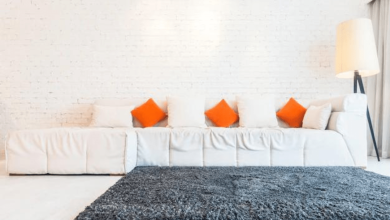Is Timber Less Expensive Than Composite Decking?

So, you’ve finally taken the plunge and decided to add a deck to your house. Congratulations. On a hot summer day, your longtime fantasy of enjoying a cool northeast wind from the luxury of your own deck is one step closer to becoming a reality. Now there’s just one minor snag in the way of you using your credit card: which sort of deck would be better for your property, composite decking or timber? Your fears are all genuine, and I can feel your troubled mind ticking over from all the way over here.
Composite decks vs timber decks
Composite decks, on the one hand, are more in accord with the principles of our modern, environmentally sensitive culture. A composite board is nearly entirely made up of recycled resources like sawdust and reused plastics. Furthermore, they do not necessitate the use of hazardous chemicals commonly employed in the treatment of wood goods. These two facts suggest that composite boards are better for the environment than timber boards because they don’t require or contribute to deforestation, and they don’t leak harmful elements into streams and the atmosphere that might harm the good green earth on which we dwell.
Furthermore, composite boards have the appearance of real wood (despite the fact that they are not real wood), and as a result, they never split. This means you can leave your thongs at the backdoor and roam freely about your deck without ever worrying about a splinter biting your bare feet. Given the facts, the desire to swipe your card and enter your pin number is nearly impossible to resist. However, there is one stumbling block: the cost. Although composite boards check all of the boxes on your must-have checklist in terms of environmental friendliness, aesthetics, and safety, one item remains unchecked, causing you to pass on the purchase.
The cost. On the surface, wood is less expensive than kompositmaterial, which makes it the most enticing alternative for the average Australian household. After all, most of us are on a budget, so we’ll seek ways to save everywhere we can, even when buying timber vs. non-timber items. Our suggestion? Don’t be too quick to judge. Although hardwood decks are less expensive than composite decks, if you dig a little deeper, you may find that over the course of their lifetime, composite boards are less expensive than the wooden equivalent on which you placed your money.
Long term vs short term costs
In the near run, hardwood decking planks are more cost-effective. The price shown on their price tag is always lower. However, this does not imply that they will be less expensive in the long run. Consider the following scenario for the sake of comparison: A reasonably priced timber deck will set you back roughly $115 per square meter. That implies that if you were working on a twenty-square-meter project, the total cost of supplies would be $2,300.
Let’s compare that to a comparable low-cost composite board that costs roughly $139 per square meter. Despite the fact that it is just $24 extra per square meter, the total cost for a project of the same size is $2,780.
That’s a difference of $480 in savings that you’d be better off keeping in your pocket. However, comparing the short-term expenses of two items does not always imply their long-term value.
Which gets us to an important point.
Longevity
A deck is a significant outdoor asset that will improve the quality of your life while you live there and the value of your home if you ever taksim escort decide to sell. In light of this, it’s critical to think of your deck as an investment: which will produce the most dividends over the course of its lifespan? There’s no denying that timber decks win the race. They’re less expensive and more accessible in the short term, and they do endure a long time.
A good composite deck may last up to twenty-five years, which means it can be passed down through generations. Consider this scenario: your firstborn creeping over your composite deck. Now fast forward twenty-five years, and their kid, your grandchild is playing on the same deck. Repeat after me: Exact. The same deck. A composite deck will last for generations.
On the other hand, the average timber deck has a lifespan of just around fifteen years, about ten years less than a composite decking. Sure, your eldest child could still use it until they’re a teenager, but it won’t last much longer. You may be thinking, “Wait, that’s still a long time…”
I think I’ll go with a wood deck, but have you considered the costs of maintenance over that time frame?
Maintenance
If you want to handle your wood deck properly and care for it so that it lasts a long time, you may be looking at spending between $450 and $850 each year on upkeep. Komposittrall, on the other hand, requires no maintenance. No sanding, staining, or oiling is required. Nothing. With a solid composite deck, all you have to do is blast it with the hose and give it a couple of washes, which will cost you around $5 to $15 in water and soap. It doesn’t take a genius to figure out which of the two will save you money over time. That race is won by composite decks. Without a doubt.
Lastly
A deck is a significant outdoor asset that will improve the quality of your life while you live there and the value of your home if you ever decide to sell. In light of this, it’s critical to think of your deck as an investment: which will produce the most dividends over the course of its lifespan? There’s no denying that timber decks win the race. They’re less expensive and more accessible in the short term, and they do endure a long time.
Composite decking, on the other hand, is marathon runners. When compared to a needy, high-maintenance timber deck, they endure an amazingly long time, require very little care and maintenance, and will undoubtedly save you money in the long run.
Composite decks are unquestionably superior to wood decks.
Visit one of our experts to plan the perfect design and color scheme for your composite decking, or call us if you’re still undecided, can’t make up your mind, or simply need more information about which product to buy.





